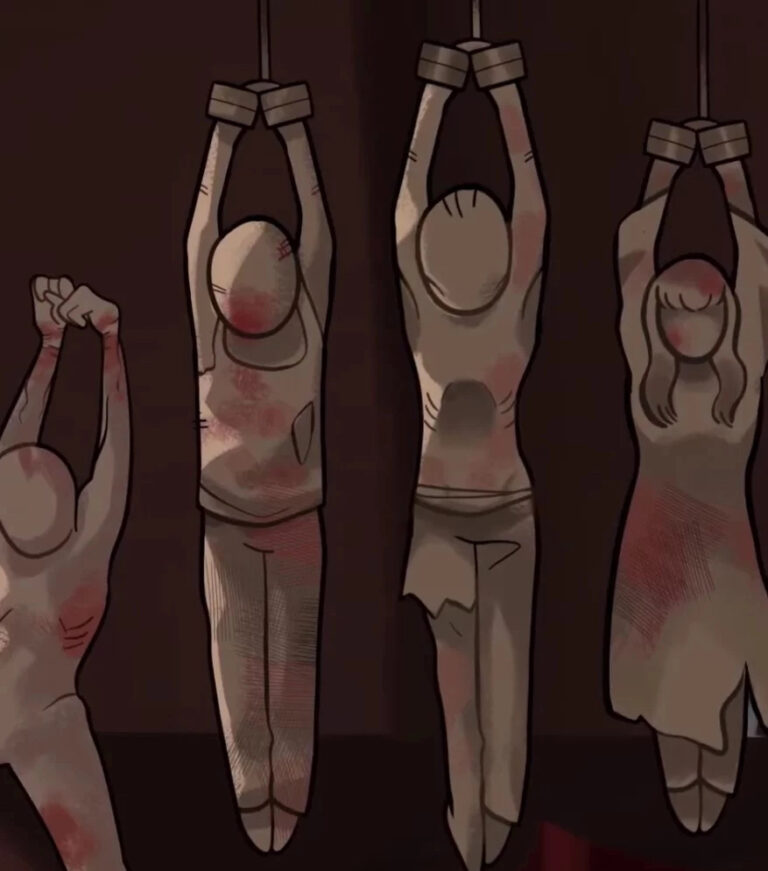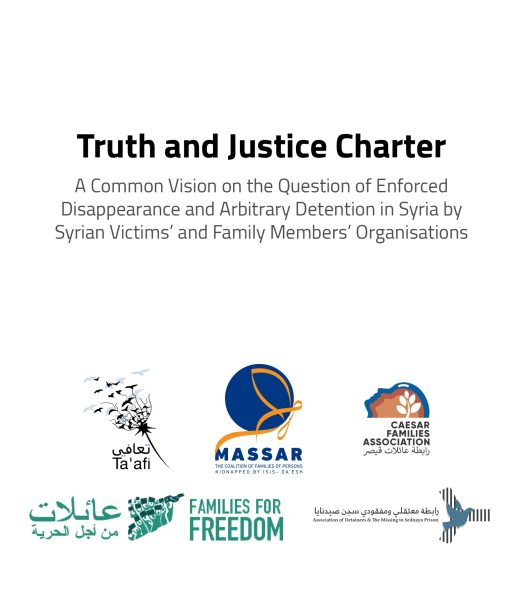Overview
Truth and Justice Charter
On February 10, 2021, five organizations that focus on victims and their families launched the “Truth and Justice Charter.” This charter reflects their collective vision for securing the rights of victims and the pursuit of justice and truth in Syria. Central to the charter is the revelation of the truth, ensuring justice for detainees, and addressing the cases of forcibly disappeared persons and their families. The Charter also emphasizes the importance of holding violators accountable, seeing these as foundational steps to achieve lasting peace in Syria. The organizations prioritize the voices and demands of survivors, victims, detainees, forcibly disappeared persons, and their families in any enduring political resolution in Syria. The Charter is designed to serve as a unified roadmap for organizations that focus on victims and their families. Additionally, it provides a strategic reference for all stakeholders, human rights organizations, policymakers, and decision-makers engaged in these processes.

Since 2011, the Syrian regime has intensified its ruthless tactics to suppress dissenting voices and counteract any political activity. These tactics, encompassing arbitrary detention, enforced disappearances, torture, and various forms of inhumane treatment, have been widely implemented without holding any perpetrators accountable. The Syrian regime persists in these violations, systematically denying and dismissing the rights of victims and their families. Additionally, a majority of armed factions, extremist organizations, and de facto authorities, notably the Islamic State in Iraq and the Levant (ISIS), have joined the list of violators. They continue to perpetrate gross misdeeds, including enforced disappearances, in territories they previously controlled.
- Association of Detainees and the Missing Persons in Seydnayah Prison
- Caesars Families Association
- MASSAR the Coalition of Families of Persons Kidnapped by ISIS – Da’esh
- Families for Freedom
- Ta’afi – Syrian survivors’ initiative
Since 2011, the Syrian regime has intensified its ruthless tactics to suppress dissenting voices and counteract any political activity. These tactics, encompassing arbitrary detention, enforced disappearances, torture, and various forms of inhumane treatment, have been widely implemented without holding any perpetrators accountable. The Syrian regime persists in these violations, systematically denying and dismissing the rights of victims and their families. Additionally, a majority of armed factions, extremist organizations, and de facto authorities, notably the Islamic State in Iraq and the Levant (ISIS), have joined the list of violators. They continue to perpetrate gross misdeeds, including enforced disappearances, in territories they previously controlled.
1- Victims of torture, inhuman, and degrading treatment
2- Victims of arbitrary detention and their families
3- Victims of extrajudicial killings and their families
4- Victims of enforced disappearance, related violations, and their families.
- A framework for addressing arbitrary detention and enforced disappearance, prioritizing the perspectives of the victims.
- A discourse that articulates the demands and aspirations of victims, emphasizing their narratives within the context of international legal principles and humanitarian standards.
- A shared foundation for victims’ organizations to collaborate in the future.
- Adopting a victim-centered approach as the foundation for all legal, political, and judicial work concerning the rights of victims. This aims to counter any external pressures, agendas, elitism, or externalism that might conflict with the victims’ vision.
- Implementing references, legal principles, and international humanitarian standards based on various facets of international law pertaining to the situation in Syria.
- The core values of the victims’ organizations include: independence, comprehensiveness, neutrality, transparency, and non-discrimination among victims regardless of their identity, type of violation, degree of suffering, or violating entity. Additionally, it emphasizes the self-representation of victims.

